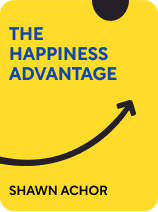

This article is an excerpt from the Shortform book guide to "The Happiness Advantage" by Shawn Achor. Shortform has the world's best summaries and analyses of books you should be reading.
Like this article? Sign up for a free trial here .
Do you want to know why happy employees are more productive? What can you do to increase happiness in the workplace?
Being happy has many benefits, including improved creativity, stronger relationships, and better health—but it can also have incredible benefits for your career. Happy employees are more productive, and there are a few reasons why this is the case.
Here’s why happy employees are more productive.
Happy Employees Are More Productive
Being happy raises the quality of your personal life, and also optimizes your success at work. Studies show that happy employees are more productive, and that positive psychology can help managers increase customer satisfaction by 42 percent and CEOs increase their productivity by 15 percent. Even in the most stressful environments, the principles of the Happiness Advantage have brought positive results to a wide range of businesses across 40 countries and five continents, including:
- A business community operating in Zimbabwe’s collapsed economy
- Big bank employees in the wake of the 2008 financial crisis
- Law schools and law firms, where students and employees suffer from high rates of depression and mental distress
- Hundreds of managers at a tax auditing firm during the first tax season following the 2008 stock market drop
The managers at the tax auditing firm felt less stressed and more satisfied with life after three hours of positive psychology training than managers who had not attended the training. Furthermore, those higher scores held up four months later, at the height of tax season.
The human brain has the capacity to adapt and grow to an extent that is still unknown. The seven principles will help you to make the most of this potential and enjoy the vast benefits of the Happiness Advantage. However, this requires more than a positive attitude—it calls for you to take actions to change your thinking and behavior. Rather than donning rose-colored glasses and ignoring your problems, these principles empower you to:
- Conquer your challenges.
- Be more productive and efficient.
- Capitalize on opportunities.
- Break bad habits.
- Achieve lofty goals.
(Shortform note: For more information about positive psychology and the nature of happiness, read our summary of The Happiness Hypothesis. And find out how small changes can have big impacts on your emotional well-being in our summary of The Happiness Project.)
How to Promote Happiness in the Workplace
Some companies have already caught onto the fact that happy employees are more productive. This can take many forms—for example, Google reportedly stocks video games in the break room and encourages engineers to bring their dogs to the office. Additionally, at one Toyota location, the company started using a training program focused on employees’ strengths, and productivity increased.
Managers and executives are in the best position to promote happiness because:
- They have the authority to influence company policies and culture.
- They’re likely to interact with a large number of people throughout the office.
- They already have the responsibility of setting an example for their employees.
Understanding that happy employees are more productive is just the first step. There are a number of ways that company leaders can make their employees happier and, thus, more productive, including:
- Providing services such as health benefits, gym memberships, and on-site daycare. Coors reported a $6.15 return for every $1 spent on its corporate fitness program.
- Frequently recognizing and encouraging employees’ good work. This can be as simple as a “well done” email or a brief recognition at the end of a meeting. Delivering that feedback with a sincere and warm tone increases the positive impact. One study revealed that teams who considered their managers to be encouraging performed 31% better than those with less encouraging managers. Even in environments like the military—which are often perceived to be deliberately harsh and intense—outcomes improve when commanding officers provide open and positive feedback to squad members.
Scientists have actually quantified the ideal ratio of positive and negative comments in interactions within groups to create success in the workplace. This ratio, which is referred to as the Losada Line, is 2.9013 positive-to-negative interactions. In other words, employees must hear about three positive comments to counteract one negative comment. Furthermore, a 6-to-1 ratio optimizes productivity and success. One mining company was experiencing substantial losses, but when it increased its ratio from 1.15 to 3.56 (about three-and-a-half positive comments for each negative one), production improved by more than 40 percent.
(Shortform note: Three scientists—Nicholas J.L. Brown, Alan D. Sokal, and Harris L. Friedman—criticized the Losada Line in their paper, “The complex dynamics of wishful thinking: The critical positivity ratio.” The mathematical equations used to calculate the Losada Line are used to calculate the flow of liquids and gases in physics and engineering. The critical scientists insist that equations that calculate the boiling temperature of water do not apply to human behavior.)
Ultimately, happy employees are more productive. Whether you’re focused on improving your individual performance or raising the achievement of your entire team of employees, prioritizing happiness as a vehicle for attaining greater success pays dividends.

———End of Preview———
Like what you just read? Read the rest of the world's best book summary and analysis of Shawn Achor's "The Happiness Advantage" at Shortform .
Here's what you'll find in our full The Happiness Advantage summary :
- How happiness isn’t the result of success, it’s the cause of it
- The benefits of happiness—from increased creativity to improved health
- Strategies for adopting a positive mindset and raising your happiness baseline






